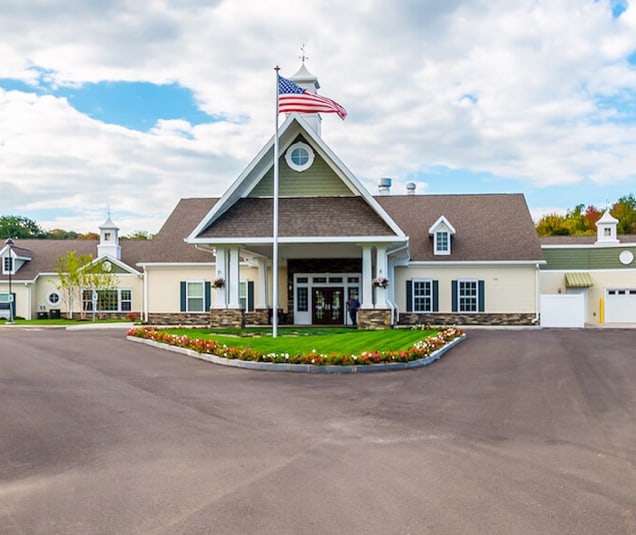Watching your loved one struggle with memory can feel overwhelming, especially when you’re trying to figure out if what you’re seeing is normal aging or something more serious. Many families wonder whether their parents’ forgetfulness is just a natural part of getting older or if it’s a sign of dementia that needs attention.
The difference between normal memory changes and dementia lies in how severely these changes affect daily life—while occasional forgetfulness is typical as we age, dementia causes progressive memory loss that disrupts a person’s ability to function independently. Understanding this distinction can help you make informed decisions about your loved one’s care, including whether specialized memory care or respite care might be beneficial.
Key Takeaways
- Normal age-related memory changes involve occasional forgetfulness that doesn’t disrupt daily life.
- Dementia causes progressive memory loss that interferes with everyday activities and independence.
- Warning signs include difficulty completing familiar tasks, confusion about time or place, and changes in personality.
- Early intervention and specialized care can help maintain quality of life for those with cognitive decline.
What Is the Difference Between Normal Forgetfulness & Dementia?
As people age, their brains naturally undergo changes that can impact how quickly they process information. These changes may take a little longer to recall a name or remember where they put their keys. The brain’s processing speed can slow down, but the ability to learn new things and form connections generally remains intact.
Why Some Memory Changes Are Normal
Normal aging affects certain types of memory more than others. Your loved one might have trouble remembering recent conversations, but can still tell detailed stories from their childhood with perfect clarity. This pattern is typical because long-term memories often stay strong while short-term recall can become less reliable.
When Memory Loss Becomes a Concern
Dementia involves progressive changes in the brain that affect memory, thinking, and reasoning abilities. Unlike normal aging, dementia causes a steady decline in cognitive function that eventually interferes with a person’s ability to work, socialize, and carry out daily activities. The changes typically worsen over time and require increasing levels of support and care.
The distinction between normal forgetfulness and concerning memory loss becomes clearer when examining how these changes affect daily activities. If your loved one can still manage their finances, follow recipes, and navigate familiar places, occasional memory lapses are likely normal. However, when memory problems start interfering with their independence and safety, it’s time to pay closer attention.
What Are Normal Age-Related Memory Changes?
Normal memory changes in aging often show up in predictable ways. Your loved one might walk into a room and forget why they came in, or they might need to check their calendar more often to remember appointments. These moments can be frustrating, but they typically do not disrupt their ability to live independently.
Common examples of normal forgetfulness include:
- Occasionally forgetting names or appointments
- Misplacing items but being able to retrace steps to find them
- Taking longer to learn new information
- Sometimes struggling to find the right word
How Often Normal Memory Lapses Occur

With normal aging, memory lapses occur occasionally but don’t follow a pattern of steadily worsening. Your loved one might have a day when they’re more forgetful, followed by days when their memory seems sharp. These fluctuations are typical and don’t usually cause significant problems in their daily routine.
Mild Cognitive Impairment as a Middle Ground
Mild cognitive impairment sits between normal aging and dementia. People with this condition experience memory or thinking problems that are noticeable to themselves and others but don’t significantly interfere with daily life. While not everyone with mild cognitive impairment develops dementia, it does increase the risk and warrants monitoring and support.
What Are Dementia Warning Signs to Watch For?
Dementia-related memory loss goes beyond occasional forgetfulness—it interferes with your loved one’s ability to function in their daily life. They might forget important information they have recently learned or ask the same questions repeatedly within a short period. Unlike normal aging, these memory problems tend to get progressively worse over time.
Warning signs that memory loss may be more than normal aging include:
- Getting lost in familiar places
- Forgetting how to do tasks they’ve done many times before
- Having trouble following conversations or TV shows
- Repeating stories or questions within the same conversation
- Difficulty managing money or paying bills
Behavioral Changes That Accompany Memory Loss
Dementia often brings changes in personality and behavior alongside memory problems. Your loved one might become more withdrawn, anxious, or confused in situations that used to feel comfortable to them. They may exhibit poor judgment in decision-making or struggle to understand social cues that were once second nature.
How Can I Take Action When I Notice Concerning Changes?
Having Conversations About Memory Concerns
Starting conversations about memory concerns requires sensitivity and patience. Your loved one might feel scared or defensive about changes they’re experiencing. Approach these discussions with compassion, focusing on your care and concern rather than pointing out their mistakes or limitations.
When to Consult Healthcare Professionals
If memory changes are impacting your loved one’s daily life, safety, or independence, it’s time to consult with healthcare professionals. A thorough evaluation can help determine whether the changes are related to normal aging, medication side effects, or a condition that requires more specialized support, like memory care. Early assessment can open doors to helpful resources and support.
How Memory Care Communities Support Cognitive Health
Memory care communities offer specialized environments designed to support people with cognitive changes. These communities provide structured routines, engaging activities, and trained staff who understand the unique needs of residents with memory challenges. The goal is to help residents maintain their abilities while providing support in areas where they need assistance.
Find Support For Your Loved One’s Memory Changes with Peregrine
The level of care your loved one needs depends on how their memory changes affect their daily life. Some people benefit from occasional help with complex tasks, while others need more comprehensive support. Understanding where your loved one falls on this spectrum can help you make informed decisions about their care options.
At Peregrine Senior Living at Onondaga Hill, we’re here to support your loved one through every step of their memory care journey. Contact us today if you’re concerned about memory changes in a loved one, so we can help you explore your options to find the right level of support for your family.












Today is National Compliment Day! It’s a reminder to share encouragement and appreciation freely. Remember, it costs nothing to be kind, but the impact of a thoughtful word can last a lifetime!
Tell a friend they make you smile. Thank a caregiver for their dedication. Compliment a resident on their sense of humor or style. 😁
We’ve seen how positivity strengthens bonds and brightens spirits. Let’s make today—and every day—a little kinder.
peregrineonondaga.com/ ... See MoreSee Less
0 CommentsComment on Facebook
Today, we honor the life and legacy of Dr. Martin Luther King Jr.—a leader whose message of equality, compassion, and courage continues to inspire us all.
His dream reminds us that even small acts of kindness can ripple outward and create lasting change.
May we carry his vision forward by leading with empathy, listening with understanding, and building communities grounded in love and unity.
peregrineonondaga.com/ ... See MoreSee Less
0 CommentsComment on Facebook
Lots of smiles today at Onondaga Hill with making our snowmen and adding some individual art to each one. Our residents enjoyed themselves with this Creative Craft and check out all of them on display on our fireplace mantel. ... See MoreSee Less
0 CommentsComment on Facebook
Lots of smiles from our community members and their family members this afternoon as we listened to the sweet sounds of Meg Mawhinney!! We also enjoyed some delicious snacks and the warmer weather. ... See MoreSee Less
3 CommentsComment on Facebook
A new year means new beginnings, and for many, that includes finding a place that feels like home. 🏠❤️
Our community offers the perfect blend of comfort, engagement, and care. Whether you’re looking for a vibrant social lifestyle or the peace of mind that comes from knowing support is always nearby, you’ll find it here.
Schedule your tour today and see how life at Peregrine can help you or your loved one thrive in 2026 and beyond!
peregrineonondaga.com/ ... See MoreSee Less
0 CommentsComment on Facebook
As we turn the page to a new year, we take a moment to reflect on the memories we’ve made and the friendships we’ve built. Every new beginning brings fresh opportunities for connection, growth, and joy. 💫
Here’s to a year filled with purpose, peace, and the beautiful moments that remind us how wonderful life can be.
Happy New Year from all of us at Peregrine! 🎆
peregrineonondaga.com/ ... See MoreSee Less
0 CommentsComment on Facebook
Community, collaboration, and care 💫
Loved spending time at our Constant Care 24/7 monthly meeting at Park Rose with some of our favorite partners, Peregrine Senior Living at Onondaga Hill , Aging Advocates CNY , and Living With Dementia CNY 💜 ... See MoreSee Less
0 CommentsComment on Facebook